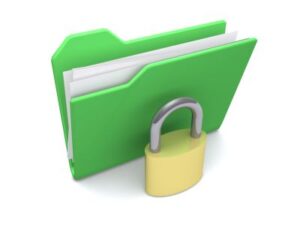I was in my forties when I started a new career in writing, and it took me a little while to realize the importance of saving everything. My first published piece was a 900-word essay for a publication called the Dana Literary Society. I proudly saved the link but deleted the essay from my documents. I already had the link to the published essay, right? No need to keep the original file.
A year or so later, I discovered that the publication and website no longer existed. My link was useless. That’s when I decided to save all my writi

ng, published and unpublished. I started by printing a copy of everything I wrote and placing it in a desk drawer. When I began having success in several areas, including short stories, plumbing and home repair articles, and essays for parenting publications, it became clear that I either needed to make a change or get a bigger drawer.
I decided to give my printer a break and enter the twenty-first century. Everything is now organized in files on my computer and backed up on flash drives. I use Microsoft Word for most of my writing and have OneDrive turned on to back everything up to the cloud. This makes saving my work very easy and allows me to access documents from my phone or other devices. Even so, I like to have a physical backup. Hence the flash drives.
There are several choices when it comes to saving your work. My wife is pursuing her master’s degree and once mistakenly deleted a paper sh
e had worked on for weeks. Fortunately, she was able to recover the document, but the following day she purchased an external hard drive and now uses it to back up everything. My son, who recently graduated from high school and has already done a good deal of creating writing, uses Google Docs, which automatically saves to Google Drive. A benefit of this platform, particularly for writers, is that you can share your documents with others and see their comments or edits in real time.
It’s nice to see all the wonderful writing you’ve done over the years, but the primary reason to back things up is because your saved writing – both published and unpublished – can earn you money in the future. This has happened to me several times. With a few important changes, I transformed an essay published in Mamalode (and saved on both OneDrive and a flash drive) into a story for Chicken Soup for the Soul.
Sometimes a piece that is rejected by one or more publications is a perfect fit for another. An essay about taking away my oldest son’s driver’s license was rejected by a publication where I’d previously had a lot of success. I saved the essay, and it eventually found a home at Your Teen. A short story that I had long ago given up on because I couldn’t come up with a good ending was revived and published in The Last Line, where they give you the last line and you write a story to fit it.
The list goes on and on, and none of these pieces would have been published if I had deleted my work. With all the different ways to save your work nowadays, you shouldn’t have to worry about deleting something, mistakenly or otherwise. Be proactive and back up your work, either to a physical device like a portable hard drive or digitally to the cloud. Someday you’ll be glad you did.
BIO: lives with his family in Maine. His nonfiction has appeared in many publications, including Chicken Soup for the Soul and Writers Weekly, and his short fiction has appeared in over twenty literary publications. He is the author of several novels, including the Joe Walker series, which can be found at his Amazon Author Page. You can connect with him on Facebook and Instagram.
It’s hard to believe that “saved work” has only been around for approximately 40 years. I wish I had my creative writing from high school from the 3 x 5 disc. I was way ahead of my time, writing about R. Kelly going through purgatory and a parody of Dante’s inferno in 1996. I am currently taking a break from publishing on online platforms so the idea of saving my work in the meantime who has been very helpful. Thank you for this short essay!